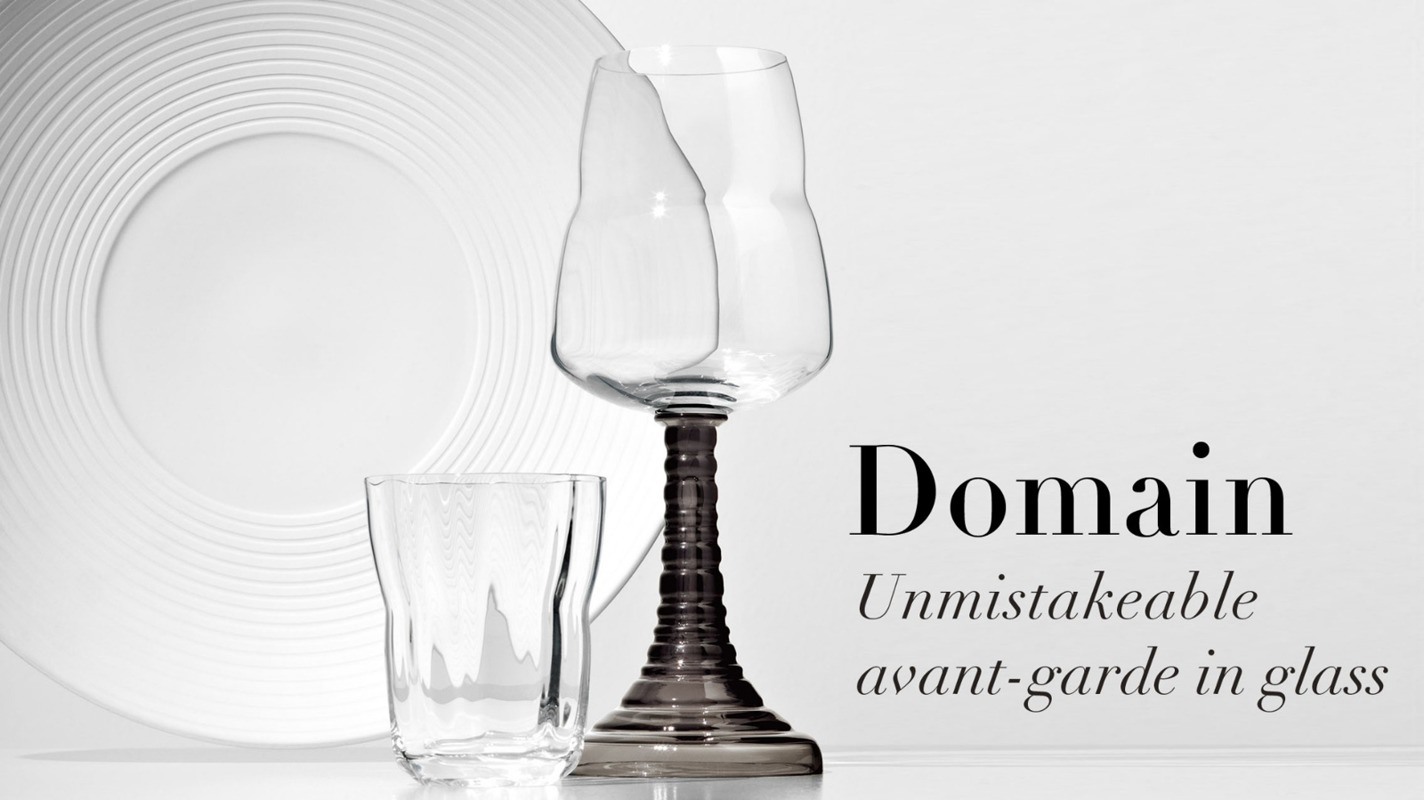
Introduction to the World of Handcrafted Wine Glasses
In the following, we turn our attention to the new wine glasses of the Domain collection: Based on designs from 2009, Stefanie Hering has created a series of handcrafted stemware, developed in collaboration with the renowned glass manufacturer Kvetna in the Czech Republic.
Read more →
Interview with sommelier Astrid Zieglmeier
The experienced sommelier Astrid Zieglmeier – head of the Gastronomy and Catering department at the Munich Chamber of Industry and Commerce – still finds it a stroke of luck that designer Stefanie Hering asked her to test the sensory properties of her glass series "Domain" from a professional point of view. Since then, Zieglmeier has even organised tastings with the glasses, for example on 12 June 2018 in the elegant premises of Munich-based architects MangMauritz.
What makes Stefanie Hering's wine glasses so special?
They meet the highest standards, both from a decorative point of view and in terms of how well they bring out the best of wines. It is rare to find glasses that do both. In addition, the glasses are also easy to use in terms of haptics, because their ribbed stems feel better to hold at the table than smooth, thin ones.
Why is it important to automatically reach for the stem and not the glass itself?
You should always hold a wine glass by the stem. This makes it easier to swirl the glass to release the aromas of the wine. Holding the glass in your hands heats the wine unnecessarily; in addition, over time, the fingerprints spoil the appearance of the glass. But you don't even think of doing that with Stefanie Hering's glasses.
Is there something special about this ribbed stem?
It is actually the main characteristic of Romer wine glasses – traditional, Central European wine glasses with thick, ribbed stems. According to today's technical knowledge, classical Romer glasses are completely unsuitable for enjoying high-quality wines, because the glass itself is shaped like a bowl. Stefanie Hering, however, has developed this traditional form into much more delicate, elegant glasses that are far more suitable for wine than ‘normal' Romer glasses.
How did she achieve this?
Stefanie Hering worked very intensively on the requirements that wine glasses have to meet and only then found the decorative shape for them. Her glasses are also a stroke of luck in that they perfectly meet the needs of the wines for which they are designed.
The collection includes glasses for Bordeaux, Riesling, Chianti, Chardonnay, and Burgundy. Is there such a thing as a basic shape in this range?
A glass in the Bordelaise-style tapers upwards, but still has a chimney, i.e. the glass continues straight after the taper. A Burgundy glass has a round belly and ends with the tapering at the top. You can make any wine look bad if you put it in the wrong glass; a Sauvignon Blanc, for example, absolutely needs the straight Bordelaise shape - it suffers greatly in a Burgundy glass.
Both shapes have the upward tapering in common. Why is this tapering so important?
It holds the scent molecules in the glass, like a rose, which you enclose with both hands before you smell it. You perceive scent much more intensely than if you just pull the blossom on the bush towards you. Accordingly, the tapering glass likewise enhances the taste experience – after all, the lion's share of what we taste is actually fragrance. We actually only know five flavours. For example, if you bite into a cherry and an apricot while holding your nose, you would only taste sweetness and sourness, but you could not distinguish between the fruits. You can't do that until you let go of your nose and thus open up access to the olfactory part of your brain. The nose also transmits odours to the olfactory part of the brain when you swallow, through the connection between the nose and the pharynx. And these odours contribute significantly to our sensory experience when enjoying wine.
Is the material of the glass also important for this?
Absolutely. On the one hand, the manual production process of the glass in the Theresienthal glassworks plays an enormous role. On the other hand, the technical material crystal glass, which Stefanie Hering works with, can hardly be surpassed as a material for wine glasses: when drinking from a very thin-walled glass, I naturally react more sensitively. The resonance of the scent molecules is better; the crystal intensifies the sensory sensations. And when you touch glasses, they have a wonderful, delicate sound.
The glass collection Domain by Hering Berlin can be found in the Hering Berlin shop.





